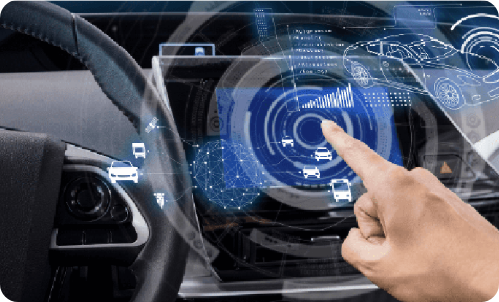AI-driven ERP: Transforming business efficiency and decision-making

Summary
In an increasingly competitive business landscape, how can organizations leverage ERP systems to enhance efficiency, drive smarter decision-making, and unlock hidden value? This blog explores the transformative potential of AI-driven ERP integration, enabling smarter automation, predictive analytics, and real-time decision-making.
Introduction
Enterprise Resource Planning (ERP) systems have long been the backbone of operational efficiency, yet many businesses struggle to extract their full value. Traditional ERPs often struggle to keep pace with the dynamic needs of modern enterprises and result in fragmented workflows and siloed data, hindering real-time decision-making. In fact, by 2027, 70% of ERP projects are expected to fall short of their business objectives, often due to misalignment with strategic goals and poor integration strategies.
This is where artificial intelligence (AI) transforms ERP from a transactional system into a strategic enabler, delivering automation, predictive analytics, and data-driven decision-making. By embedding AI into ERP frameworks, organizations can streamline operations, proactively identify risks, and drive agile responses to market changes. This blog explores how AI-driven ERP integration enhances efficiency, eliminates redundancies, and enables data-driven innovation, positioning businesses for long-term growth.
The shift from static to intelligent ERP
Traditional ERP systems have primarily functioned as centralized data repositories, relying on manual inputs and predefined rules to generate reports. However, static ERP models lack the flexibility and intelligence required to support modern enterprises. AI transforms this paradigm by embedding intelligence into ERP workflows, enabling automation, predictive analytics, and adaptive decision-making.
AI-driven ERP integration introduces three fundamental shifts in traditional ERP functionality:
- Automation of routine tasks: AI-driven workflows minimize manual intervention, reducing errors and increasing efficiency. With this, organizations can achieve faster turnarounds, lower operational costs, and improve accuracy, enabling them to respond swiftly to market demands.
- Predictive insights for smarter decision-making: AI models analyze vast datasets to anticipate trends, identify inefficiencies, and optimize resource allocation. This enables businesses to anticipate customer needs, mitigate risks, and capitalize on emerging opportunities, transforming data into actionable strategies that drive sustainable growth.
-
Adaptive decision-making: AI-driven ERP integration allows systems to adapt and refine recommendations based on historical performance, ensuring that businesses are equipped to handle evolving challenges and opportunities. This fosters agility and resilience in a dynamic market.
As ERP technologies evolve—embracing SaaS, aPaaS, and embedded AI—businesses should focus on integration frameworks that align technology with core strategies. Without this, organizations risk creating disconnected operations, limiting the transformative potential of their ERP investments.
Unlocking hidden value with smarter ERP systems
The most compelling aspect of AI in ERP is its potential to transform decision-making and customer experience. Gone are the days when executives relied solely on gut instincts or static reports. Systems with AI-driven ERP integration offer predictive analytics that enable leaders to make informed decisions based on real-time data. For example, AI algorithms can analyze sales pipelines to identify cross-selling opportunities, assess supply chain risks to prevent disruptions, and recommend pricing strategies to boost profitability—all within the same platform that manages day-to-day operations. Beyond automation, AI elevates ERP from an administrative tool to a strategic intelligence hub, empowering organizations to achieve transformative benefits such as:
- Automate workflows: Machine learning (ML) models streamline repetitive tasks, reducing human effort and minimizing errors.
- Optimize supply chains: AI predicts demand fluctuations, identifies bottlenecks, and improves inventory management.
- Faster time-to-value: AI-led ERP systems deliver ROI faster than traditional approaches by reducing implementation timelines and automating configuration.
- Cost optimization: Automation minimizes manual efforts, accelerates fraud detection and compliance monitoring, and lowers operational costs by optimizing resource utilization.
- Greater agility and scalability: AI enables continuous ERP evolution, ensuring businesses can quickly adapt to market changes and scale operations without overhauling the system.
- Enhance decision-making: AI-powered analytics deliver real-time insights, enabling to make proactive, data-backed business decisions faster.
- Higher employee productivity: By eliminating repetitive tasks and providing intelligent guidance, AI enhances workforce efficiency and engagement.
Challenges in AI-led ERP implementations
While AI-driven ERP integration offers significant advantages, implementation presents challenges that organizations must address to fully realize their potential. Successfully integrating AI into existing ERP frameworks requires careful planning, robust data management, and a clear understanding of the technical and operational complexities involved. However, by partnering with strategic solution providers, businesses can achieve transformative outcomes, leveraging their proven methodologies and innovative tools to design and implement a tailored AI-driven ERP ecosystem. Below are some of the key challenges businesses may face:
- Data quality and integration
AI relies heavily on high-quality, consistent data to deliver accurate insights and drive decision-making. However, many organizations struggle with fragmented or incomplete datasets spread across multiple systems. Poor data quality can lead to incorrect insights, undermining the value of AI-driven ERP systems. Ensuring data cleanliness, standardization, and seamless integration across departments is therefore crucial for success. -
Technical complexity
Integrating AI with existing ERP systems—especially legacy platforms—can be a complex undertaking. These systems often require significant customization, upgrades, or even overhauls to support AI functionalities. Additionally, ensuring compatibility between AI modules and existing infrastructure demands specialized expertise, making it essential to partner with experienced implementation providers. -
Cybersecurity risks
As AI-enabled ERP systems handle vast amounts of sensitive data, they become attractive targets for cyberattacks. The integration of AI introduces new vulnerabilities that must be addressed through robust cybersecurity services. Organizations need to prioritize data encryption, access controls, and threat monitoring to protect their systems and maintain trust with stakeholders.
Why AI-integrated ERP is a competitive advantage
AI integration transforms ERP systems into intelligent ecosystems that drive efficiency, innovation, and agility across the enterprise. By combining autonomous capabilities with a business-wide focus, AI integration empowers organizations to do more with less. With advanced capabilities such as ML, natural language processing (NLP), and automation, enterprises can unlock new levels of operational excellence and strategic value. Key benefits of AI-driven ERP integration include:
-
Intelligent data integration for a unified system
One of the core challenges of traditional ERP systems is fragmented data spread across multiple modules, departments, and legacy systems. AI solves this issue by enabling intelligent data mapping, real-time synchronization, and automated anomaly detection. For instance, a multinational corporation can integrate AI-driven ERP across subsidiaries, enabling real-time financial reconciliation and automatic detection of currency conversion discrepancies, ensuring compliance and financial accuracy. -
AI-powered automation for workflow optimization
AI enhances ERP efficiency by automating labor-intensive workflows, reducing reliance on manual inputs, and accelerating operational cycles. Machine learning models identify patterns in business operations, suggesting optimizations and reducing human intervention. An AI-enabled ERP system automates purchase order approvals based on predefined business rules, reducing procurement cycle times and enhancing supplier collaboration.
Predictive analytics for smarter decision-making
Traditional ERP reporting relies on historical data, limiting its ability to anticipate future trends. However, AI-driven ERP integration draws on predictive analytics, allowing businesses to proactively manage risks, optimize inventory, and enhance demand forecasting. By analyzing historical data, AI models generate accurate forecasts, helping organizations proactively adjust strategies. For example, AI-powered demand forecasting in ERP enables manufacturers to optimize inventory levels, preventing stock shortages and reducing excess inventory costs. -
AI-driven NLP and conversational interfaces for enhanced UX
ERP systems often require users to navigate complex interfaces to retrieve reports or execute transactions. AI-powered NLP simplifies interactions through chatbots, voice assistants, and conversational analytics. Employees can retrieve reports, update records, or generate insights simply through voice or text commands, eliminating the need for complex system navigation. For instance, a plant manager in a manufacturing firm can query the ERP via chatbot for real-time production delays across multiple assembly lines, identifying bottlenecks and reallocating resources immediately. This reduces downtime, optimizes production schedules, and enhances operational agility without waiting for manual reports or complex dashboard configurations.
The future of ERP: AI as a key differentiator
The future of ERP systems is being shaped by agility, intelligence, and interconnectedness. As AI-driven ERP integration advances, ERP systems will evolve from being transactional repositories to intelligent ecosystems that drive business growth, driving transformative changes in how businesses operate and integrate their processes. Also, AI, combined with emerging technologies such as IoT, blockchain, and edge computing, will drive hyper-connected, data-driven enterprises. By adopting and integrating these technological advancements into their ERP systems, organizations can unlock new levels of efficiency, enabling smarter decisions and stronger resilience. By embedding AI into ERP systems, organizations can go beyond automation, transforming ERP into a self-optimizing, decision-support ecosystem that generates strategic business value.






